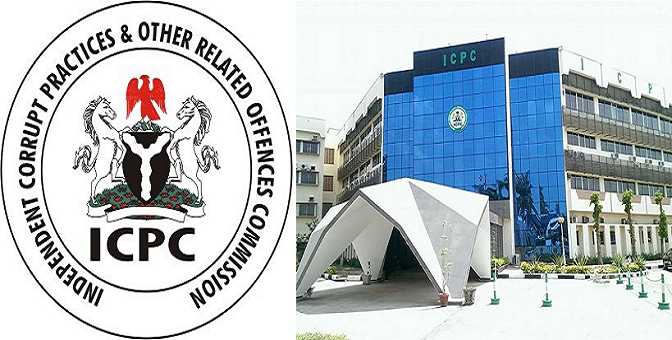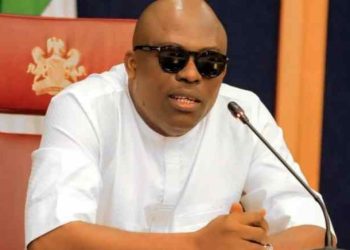The Chairman of the Independent Corrupt Practices and Other Related Offences Commission (ICPC), Dr. Musa Aliyu, has confirmed the recovery of N21bn salary fraud in a single investigation, as a result of the adoption of the Integrated Payroll and Personnel Information System (IPPIS).Aliyu, who spoke in Abuja at the 2025 National Conference on Public Accounts and Fiscal Governance organised by the Senate and House of Representatives Public Accounts Committees, called for the establishment of a special court to prosecute economic crimes.
To close leakages and enhance transparency, he advocated for the digitization of key government processes, including payroll, procurement, and revenue collection.
He said, “If we digitize our systems and eliminate human discretion, we will cut out most of the corruption,” referencing international examples like Bulgaria, where procurement processes are fully transparent and publicly accessible.
He also called on lawmakers to pass a comprehensive whistleblower protection law, describing it as a vital tool to encourage citizen reporting of corruption.
He also stressed that tackling cases like the N21bn salary fraud requires more than policy declarations.
“Let it not just be policy. Let it be law, with protection and incentives for those who speak out,” he said.
In addition, he called for the establishment of special anti-corruption courts through constitutional amendment to speed up justice in corruption-related cases.
He gave a vivid account of his experience as a prosecutor, citing how some EFCC cases dated back to 2006, which the Commission is yet to secure convictions for due to endless adjournments and changes in judges.
He warned that Nigeria’s continued survival depends on the outcome of the anti-corruption fight.
He applauded the National Assembly for organising the conference and called for greater collaboration with civil society organizations and the media to deepen public accountability, educate citizens, and expose wrongdoing.
Represented by the Director of Finance, Akporo Michael, he also threw his weight behind the fiscal policy reforms of the present administration, particularly the recent tax legislation signed into law, which he said would reposition Nigeria’s fiscal framework and significantly boost revenue mobilization.
These reforms aim to increase our tax-to-GDP ratio to between 18% and 20% in the coming years,” he said, adding that this would help the country meet its growing development needs.
He said Nigeria’s low tax-to-GDP ratio of 7.8 percent is among the lowest in sub-Saharan Africa.
In contrast, countries like Kenya, South Africa, and Egypt are recording double-digit ratios and reaping the benefits in infrastructural development and service delivery, he said.
While expressing grief over the opacity of the Nigerian National Petroleum Corporation Limited (NNPCL), he observed: “Around the world, Saudi Arabia—their national oil company—in the year 2024 posted a net profit of $106.25 billion.
“Around the same year, you can do a good mix. Our NNPC—how much did it post? $2.4 billion profit in 2024”.
The ICPC boss also called for the overhaul of Nigeria’s public sector salary structure, which he described as unjust and demoralising.
He urged the National Assembly to engage the Salaries and Wages Commission and harmonize pay scales in a way that reflects fairness, justice, and economic reality.
While applauding recent gains in Nigeria’s global corruption ranking, the EFCC official warned that the fight is far from over.He reminded the audience of Nigeria’s past designation as one of the world’s most corrupt countries by Transparency International and cautioned against complacency.
“We’ve improved, but we’re still not where we should be. Out of 140 countries ranked by Transparency International in 2024, Nigeria is still behind 100. That means only 40 countries are below us,” he said.
He linked widespread corruption to poor accountability, misuse of public office, weak sanctions, and a lack of transparency in governance.
He argued that corruption has led to a trust deficit between citizens and the government and scared away investors.
In his presentation, the Governor of the Central Bank of Nigeria (CBN), Olayemi Cardoso, called for greater synergy between monetary and fiscal authorities to enhance Nigeria’s macroeconomic stability and ensure sustained national development.
Cardoso, who was represented at the National Conference on Public Accounts and Fiscal Governance by a senior CBN official, reaffirmed that the roles of both the Central Bank and fiscal authorities were not at odds, contrary to popular opinion.
He said while the fiscal authorities focus on revenue generation and development, the CBN’s primary mandate is to ensure that fiscal actions do not destabilize the economy.
Cardoso noted that one of the CBN’s central concerns is to balance government spending with the need to maintain macroeconomic stability, especially in areas like inflation, exchange rate management, and the strength of the naira.
He highlighted that since the inauguration of the current management at the CBN, the bank has adopted a proactive approach to both global and domestic economic developments.
He cited the minimal impact of recent geopolitical tensions as proof of this shift in strategy.
The CBN Governor stressed that a well-coordinated macroeconomic framework, underpinned by transparency, consultation, and shared objectives between fiscal and monetary actors, is essential to navigating Nigeria’s complex economic terrain.









